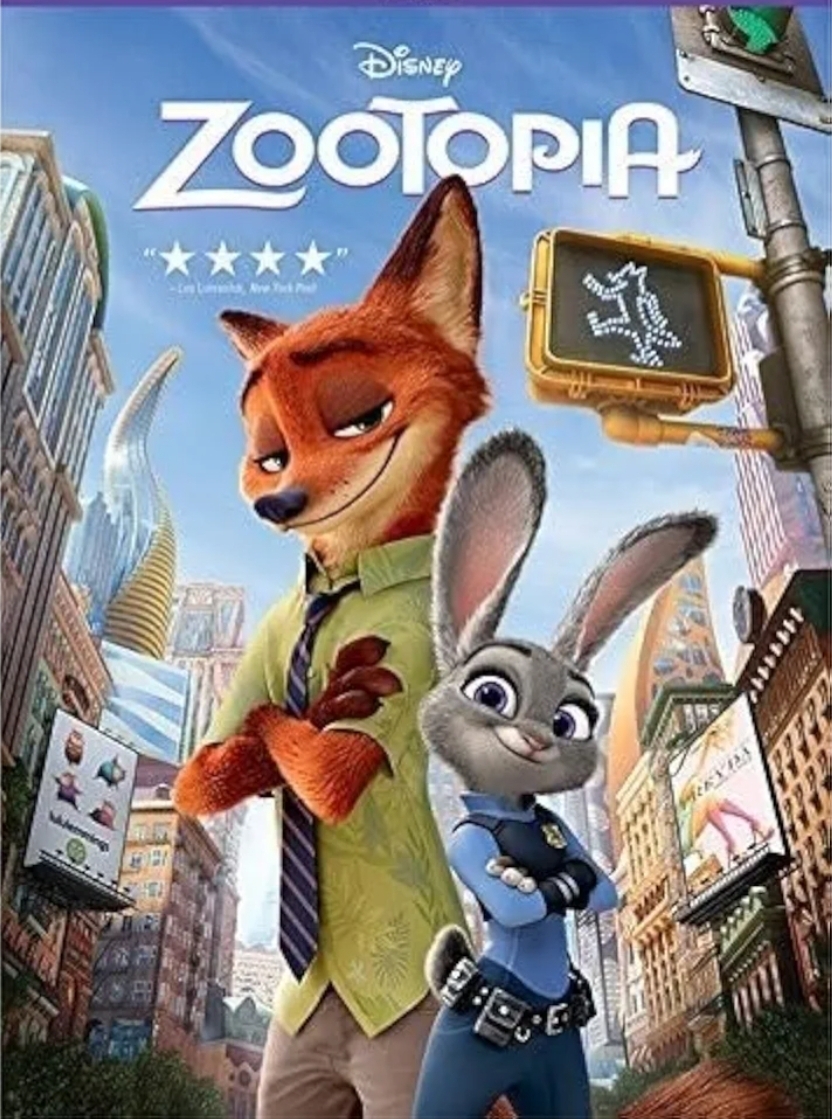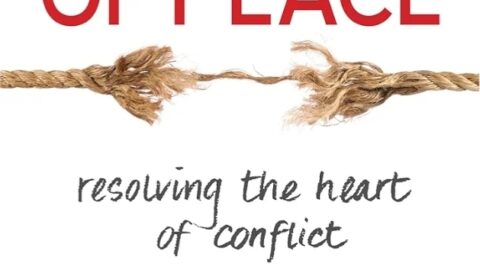Core Question: Can a society overcome fear and bias when its systems quietly benefit from them?
Tagline (spirit): “Try. Everything.” — as long as it harms no one (including you) and examine your blind spots—guided by Agápē.
What is Agápē?
In classical Greek, there are four common words for “love”:
- Agápē — sacrificial, unconditional love; wills the good of the other, even at personal cost.
- Érōs — romantic/erotic desire; attraction and longing.
- Philia — friendship/affection; comradeship shaped by shared virtue.
- Storgē — familial love; natural affection within family bonds.
Why Agápē fits Zootopia
- Truth before tribe
Judy risks career capital to admit her harmful bias about “predators going savage,” choosing truth and repair over optics. That is agápē: willing others’ good—even when it costs reputation and comfort. - Friendship that wounds to heal
Nick confronts Judy’s microaggressions and the press-conference wound. Their philia becomes agápē when it trades defensiveness for confession, and sarcasm for costly solidarity (the pen evidence, the museum plan). - Protection without prejudice
Judy’s policing matures from quota-chasing zeal to guardian service—locating missing mammals, de-escalating, and protecting the vulnerable regardless of species. Love becomes public vocation. - Storgē widened beyond burrow and borough
From Bunnyburrow storgē (family carrots and caution) to city-wide care, Judy learns family love is training wheels for agápē that embraces foxes, sheep, big cats—neighbors, not stereotypes. - Counterfeits exposed: fear as control
Bellwether weaponizes fear to consolidate power. Agápē unmasks this: security that scapegoats a minority is not love—it’s domination dressed as safety. - Calling each other higher
Judy and Nick call out and call forth—she pushes him beyond hustling; he steadies her zeal with street wisdom. Agápē refines éthos: talent aimed at the common good, not at vindication. - Repair as policy, not PR
The resolution isn’t just friendship restored; it’s systems mended—antidotes distributed, narratives corrected, policing re-aimed at trust. Love translates into institutional healing.
Symbols that point to Agápē in Zootopia
- Carrot pen (recording) → truth that protects, not entraps.
- Police badge → authority as service to every kind.
- Blue night howler serum → fear weaponized; love demands antidotes.
- Press conference → words that can wound or heal a city.
- Bunnyburrow carrots → storgē’s roots feeding city-wide responsibility.
- Nick’s junior ranger sticker → dignity restored; past redeemed for vocation.
Quick takeaway
Zootopia insists that real safety is born not from fear-driven control but from agápē—truthful, cross-tribal love that confesses harm, protects the vulnerable, and reforms systems so every kind can belong. When that love leads, philia becomes brave partnership, storgē scales into civic care, and a fox and a rabbit show a city how to live beyond its labels.
The Dream and the Bias
Moral Core: Aspiration collides with inherited prejudice
Judy Hopps, an optimistic rabbit from the agrarian Bunnyburrow, dreams of being a cop in Zootopia. The city sells a brand of progress (“anyone can be anything”), yet Judy’s own parents warn her about predators; Judy internalizes subtler forms of bias even as she fights explicit ones against prey. She graduates (top of the class) but is assigned meter-maid duty—a polite demotion rooted in stereotype (“a bunny isn’t real police”).
She meets Nick Wilde, a hustler fox. Judy distrusts Nick instantly—carrying fox repellent—even as she harbors resentment at being stereotyped herself. Hypocrisy established.
Lessons
- Aspirations don’t erase bias; they often mask it.
- Institutional politeness can reinforce stereotypes (soft bigotry of low expectations).
- The city’s motto is a brand, not a guarantee.
Philosophical Frame
- Arendt: Social myths vs. lived reality.
- Implicit bias theory: People can be targets of one stereotype while carrying another.
Coercion, Coalition, and the Missing Predators
Moral Core: Pragmatic alliances and ethical shortcuts
To keep her job, Judy bluffs the Chief (Bogo) and takes the Otterton missing-person case, coercing Nick into help via recorded self-incrimination (a moral strike against her). Their investigation exposes a pattern: predators are going “savage.” Lead by lead (Little Rodentia, Mr. Big, Mystic Springs), Judy and Nick form a functional partnership—their prejudice softens as competence and vulnerability grow.
Lessons
- Cooperation humanizes the “other.”
- Means matter: Judy’s early coercion mirrors the abuses she claims to resist.
- Truth grows in contact—shared risk builds trust.
Philosophical Frame
- Aristotle (philia): Friendship of virtue formed in action.
- Pragmatism: Knowledge is earned by inquiry, not slogans.
Press Conference and the Scapegoat Mechanism
Moral Core: Narrative capture through fear
The investigation reveals Night Howlers—Judy misinterprets them as a biological trigger in predators. At the press conference she implies predator biology is the problem. Overnight, the city turns on predators: employment suspensions, social shunning, micro-aggressions turning macro. Nick—wounded—walks out. Judy returns to Bunnyburrow and finally learns Night Howlers are plants, weaponized by a plot, not genetics.
Lessons
- Fear + official microphones = systemic harm.
- Good intentions don’t cancel bad inferences.
- Scapegoating restores a fragile sense of order by sacrificing a group.
Philosophical Frame
- René Girard: The scapegoat mechanism as social glue.
- Social epistemology: Authority shapes “truth” faster than facts can catch up.
Confession, Repentance, Repair
Moral Core: Accountability as the engine of reconciliation
Judy returns, apologizes to Nick—specifically and without deflection—and asks him to be her partner. They uncover the true plot: Assistant Mayor Bellwether (a prey leader) engineered the crisis—kidnapping predators, dosing them with Night Howler serum, and weaponizing fear to cement power.
Lessons
- Accountability restores trust faster than explanations.
- Oppressed groups can also oppress when power shifts; virtue isn’t guaranteed by victimhood.
- Systems often benefit from fear; crisis expands control.
Philosophical Frame
- Restorative justice: Truth + apology + changed behavior.
- Machiavelli: Leaders can manufacture threat to consolidate rule.
Exposure, Reorder, and Practice
Moral Core: From slogans to systems
Bellwether’s plot is exposed; the antidote reverses the savagery. Judy becomes a full officer; Nick becomes ZPD’s first fox cop. The city doesn’t magically heal; it practices its ideals—daily.
Lessons
- Progress is a discipline, not a destination.
- Representation matters, competence more; both together rewire expectations.
- Justice requires feedback loops: investigate, correct, retrain, repeat.
Philosophical Frame
- Virtue ethics: Character and culture are shaped by habits.
- Rawlsian fairness: Systems should be designed as if we didn’t know which group we’d be born into.
Symbols & What They Mean
| Symbol/Setting | Meaning |
|---|---|
| “Anyone can be anything.” | Civic brand that can anesthetize scrutiny; ideals require infrastructure. |
| Fox repellent | Carried bias; safety theater that injures trust. |
| Night Howlers | Weaponized misinformation; fear engineered for power. |
| Press conference | Legitimized error; when authority codifies bias. |
| ZPD Academy medal | Merit vs. tokenism; performance must meet representation. |
| Ecologies (Tundratown, Savanna, Rainforest) | Urban pluralism; diversity requires design (accommodation, not assimilation). |
Core Themes (with Real-World Application)
- Implicit Bias & Structural Incentives
- Lesson: Bias hides in tools (assignments, “safety” gear, policies).
- Apply: Audit policies and equipment for disparate impact; run bias training with measurable changes (e.g., randomized assignments).
- Narrative Control vs. Truth Seeking
- Lesson: Press mics can turn hunches into harms.
- Apply: Crisis comms include red-team review, “unknowns” section, and time-boxed updates.
- Friendship Across Difference
- Lesson: Shared work dissolves caricatures.
- Apply: Design mixed-team projects with joint accountability and common metrics.
- Power Uses Fear
- Lesson: Leaders gain leverage by magnifying threats.
- Apply: Demand sunset clauses, independent oversight, and data transparency for emergency powers.
- Repentance as Civic Practice
- Lesson: Apologies + policy correction rebuild legitimacy.
- Apply: Public error logs; after-action reviews for agencies and media.
Character Arcs (as Moral Progress)
| Character | Starting Blind Spot | Transforming Moment | New Virtue |
|---|---|---|---|
| Judy Hopps | Meritocratic but biased; coercive pragmatism | Specific apology to Nick; unlearning at Bunnyburrow | Humility + responsible power |
| Nick Wilde | Cynicism from childhood profiling | Accepts apology; joins ZPD | Trust + lawful service |
| Chief Bogo | Proceduralism; soft prejudice | Recognizes results; backs Judy/Nick | Fair-minded pragmatism |
| Bellwether | Victimhood → power lust | Orchestrates fear | (Negative) Machiavellianism exposed |
A Practical “Zootopia” Checklist (for orgs, schools, cities)
- Policy Audit: Where do our “meter-maid” assignments quietly track with stereotypes?
- Crisis Guardrails: Before public briefings, run a bias/uncertainty checklist.
- Mixed Teams by Design: Pair “Judy & Nick” types—different backgrounds, shared KPI.
- Data With Dignity: Publish outcome stats (hiring, discipline, services) with context and fixes.
- Repair Protocol: When harm occurs, do specific apologies, name the policy change, and set a re-review date.
Why Zootopia Works (Craft Notes)
- Genre fusion: Buddy-cop mystery + social allegory keeps message grounded in plot.
- Ecology of spaces: Districts visualize pluralism by design (accommodation over assimilation).
- Humor with bite: Sloth DMV, weaselly weasel—satire disarms, then instructs.
- No saints: Even the hero harms; growth requires repentance.
Final Reflection
Zootopia insists that prejudice isn’t a glitch; it’s a default—personally, culturally, and systemically. The hope isn’t in slogans or perfect leaders, but in habits: apology, inquiry, mixed cooperation, transparent corrections. The city gets safer and fairer not when “anyone can be anything,” but when everyone can be accountable—especially when fear hands them a megaphone.






